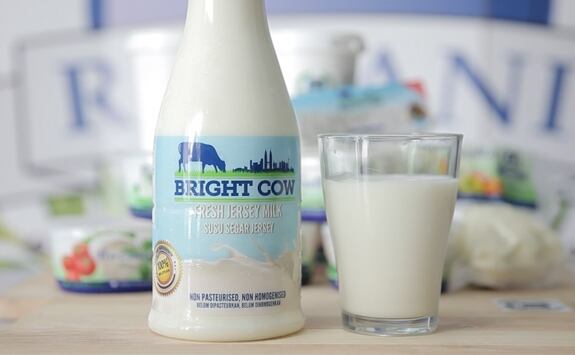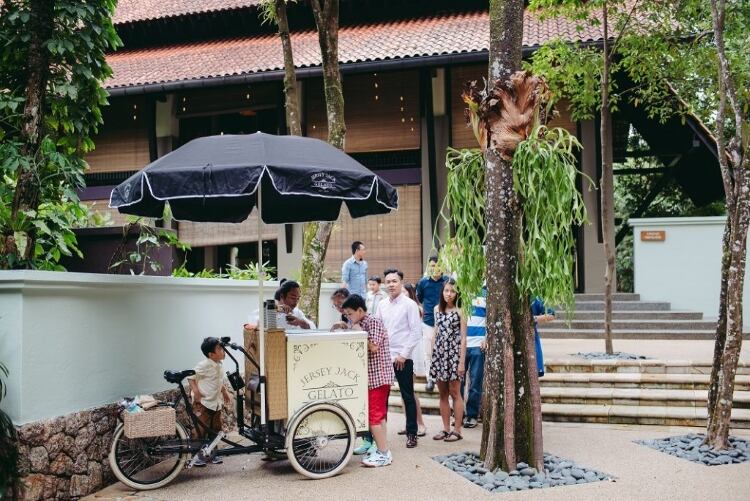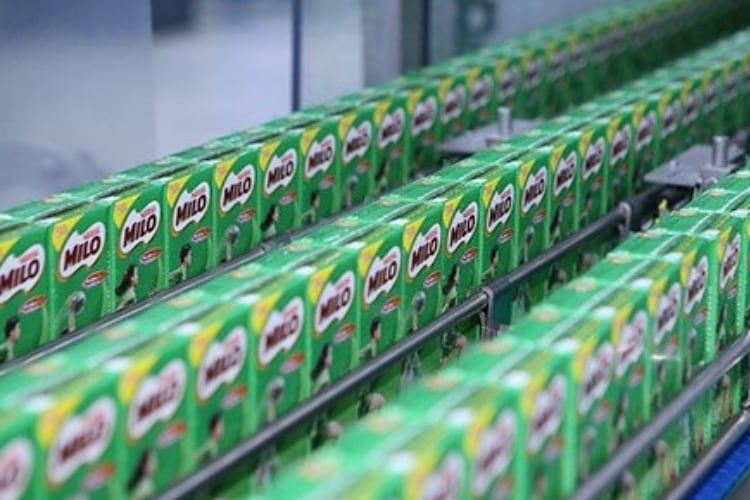Seven years later, having at one point been forced by government regulations to change their approach to pasteurization, they are tapping into growing demand for premium products and fresh produce.
Their move from software to the soil was prompted by an almost complete lack of what many foreigners would see as decent milk in Malaysia. At the time, most of what was available was long-life and UHT, and not much has changed since 2011 when you look at what is stocked on supermarket shelves and in many cafes.
“When we first started, we began with really raw milk,” Bala Nair, who co-founded Kuala Lumpur-based Bright Cow with Briton Paul Foster, told DairyReporter.
“We didn’t want to compete with the big boys who had a lot more marketing dollars than we did, so we segmented ourselves and said let's focus on good-quality raw milk. This was quite interesting from a marketing strategy perspective because we noticed there was demand from people looking for this.”
Controlled environment
Now with farms managing more than 200 cows, and additional product lines including yogurt, cheese, paneer and buttermilk, the business claims to market some of the most expensive milk in the supermarket.
Retailing at around RM10 ($2.40), a liter of Bright Cow fresh milk can cost about a quarter more than a liter of Tesco’s own-brand milk in Malaysia. The price-point reflects the way the company manages its animals, which falls just short of hugging them and reading them poetry.
Bright Cow raises Australian Jersey cows, a breed more adaptable to the tropics and known to produce good-quality milk in high volumes. They are kept in climate-controlled barns, where all aspects of their environment are managed electronically.

Believing that “happy cows make for good milk”, the company sells to consumers through retail and direct distribution. It also provides dairy products to SME manufacturers and some 250-300 cafes, restaurants and hotels in and around the capital.
Gelato in local flavors
One of its customers, artisanal gelato manufacturer and retailer Jersey Jack, has been seeing business grow steadily since it opened its doors in 2015. It is known for its fleet of 1930-styled battery-powered ice-cream tricycles that sell gelato in tourist areas and at corporate events.
“It’s still a niche market, and it’s growing. Some people are crazy about gelato, they come to us from the other side of KL, but it’s certainly not a mass market product,” Tony Gowler, the British founder of Jersey Jack, told DairyReporter.
Like Bright Cow’s founders, Gowler’s background is not in dairy. Having taught himself the art of ice-cream-making, the former engineer has created close to 60 flavors of gelato and sorbet, including a salmon and wasabi variety and seasonal lines such as mooncake gelato.
He has tinkered with local flavors and, surprisingly, reduced the typical sweetness of gelato for the notoriously sweet-toothed Malaysian market. Varieties like chilli-ginger lemongrass, gula melaka (palm sugar treacle), apple-lime assam boi (sour plums) and jackfruit are among the popular flavors that reflect Malaysian tastes.
“We have our regulars, who are certainly middle- and upper-income people. If most people came to our shop and saw we were charging RM10-12 for a gelato, they’d probably have a heart attack,” he joked.
About 70% of Jersey Jack’s business comes from tourists buying gelato from Gowler’s fleet of tricycles and corporate events where they are present, and the remaining 30% from its retail store in the center of Kuala Lumpur.
The company’s main route to growth has been in supplying restaurants and hotels for business meetings, conferences and banquets, where it operates as an outside caterer. Some hotels have leased the tricycles for use at its own events or to sell gelato in their lobbies.
“We are doing well on the corporate side, but retail is very tough at the moment. It would be nice to have a big flagship outlet in Pavilion and KLCC [shopping malls], but I don’t see that happening yet,” Gowler added.
Whereas gelato can be made from most fatty ingredients, it benefits considerably from premium raw materials like Bright Cow’s milk. If this were not available, Gowler would probably have had to turn to supplies of powdered milk or other less-palatable ingredients.
Growth of premium
Though Malaysia is growing less rapidly than many of its Southeast Asian neighbors due to its much more established economy, there is still a similar trend towards premium products and fresh produce to what is being seen in the likes of Indonesia, Thailand and Vietnam, where middle-classes have been growing rapidly.
To cash in on the growing number of Malaysian epicureans, Nair says Bright Cow must find ways to lower its prices, especially in segments where it must compete with cheaper imports.
Its cheeses, for example, do well in a small and competitive market with Bright Cow’s mozzarellas and ricottas, though the co-founder struggles to figure out how imports can be priced so competitively. Even though the Malaysian company controls its supply chain and distributes to a small geographic area, it still finds it difficult to make hay against international brands.
“Malaysia is definitely heading in a premium direction and we are getting a lot of new requests for our products,” said Nair.
“A number of cafes do try them and like them. If the owner is looking for a farm-to-table kind of concept, they tend to work with us, but if he’s price-sensitive and focused on margins, it’s a bit difficult to compete because the cost to produce good-quality milk is relatively expensive here.
“The question for us is how do we reach economies of scale that will allow us to produce our products at a lower price. Malaysia is so price-sensitive that though the trend might be there, our challenge is to get such a scale that we can bring the cost down by maybe 15-20%,” he added.



